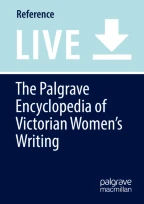
The Factory Acts were a series of 21 laws, passed between 1802 and 1961. Victorian women writers responded to these acts through their writing, particularly in the growing genre of the industrial or social problem novel and in working class poetry.
This entry covers the acts enacted before and during Victoria’s reign (i.e., the 18 acts enacted between 1802 and 1901) and women’s responses to them. These introduced rules governing the conditions of work in factories, and the number of hours workers would be permitted to work. The shared aim to improve the well-being of factory workers, particularly young workers, has been seen as a defining characteristic of the factory acts (Hutchins and Harrison 1911). Women documented the poor conditions in factories in novels and poetry, which in turn influenced legislation.
Five factory acts were passed between 1802 and 1831. These acts introduced some protections for children under the care of.